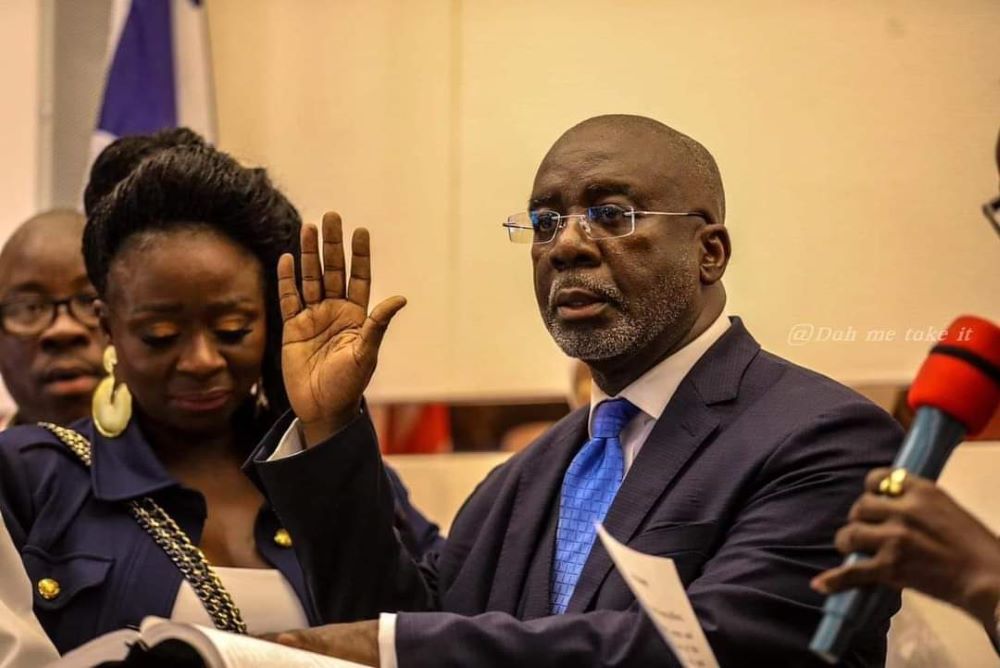The ongoing leadership conflict within the House of Representatives has brought attention to Speaker Jonathan Fonati Koffa, who is poised to be remembered as a dedicated public servant committed to the rule of law. In light of a contentious situation where the majority of his colleagues moved to oust him and appointed a successor, Speaker Koffa proactively sought legal recourse by filing a writ of Mandamus with the Supreme Court. He contends that he remains the legally elected leader of the 55th Legislature and is challenging the legitimacy of the majority bloc’s actions. The Supreme Court’s subsequent acceptance of his case, which leads to a status quo order pending further assessment, underscores the significance of Koffa’s legal stance in a landscape previously marked by the arbitrary removal of leaders without due process.
Throughout this struggle, Speaker Koffa has maintained that he is open to resigning if afforded the due process dictated by law—a request that has largely been ignored by the majority bloc, who seem to be employing strategic political maneuvers rather than adhering to legal protocols. This focus on legislative tactics over lawful actions reflects a concerning trend in governance, which Koffa’s actions are actively challenging. Koffa’s willingness to fight against what he perceives as unjust actions conveys a crucial message about the importance of legality in political processes, making him a figure worthy of commendation in a political climate where rule of law is increasingly jeopardized.
By standing firm in his commitment to legal procedures, Koffa aims to set a precedent that guards against arbitrary leadership changes driven by dissatisfaction rather than lawful processes. His battle emphasizes that, under constitutional provisions, all individuals and groups must adhere to established legal norms when dealing with leadership matters. The Constitution serves as a guiding framework, allowing for lawful recourse when citizens or legislators seek to remove leaders. Koffa’s efforts are not merely about his political survival; they represent a larger fight for accountability and adherence to the law within government institutions, an essential principle for sustaining democracy and instilling confidence in governance.
As Koffa confronts this crisis, he calls for a restoration of order through lawful means, arguing that even if he were to be removed from his position, it must occur in a manner consistent with legal regulations. His resolve—and the support he is garnering—demonstrates the societal need for leaders to prioritize legal frameworks over political convenience. This episode serves as a reminder for all branches of government that the law should reign supreme and that the actions taken today will undoubtedly influence the societal norms of future generations. Thus, Speaker Koffa’s stand resonates not only within the current political climate but also establishes a relevant reference point for future leadership dynamics.
With the Supreme Court hearing both sides of the argument, the impending decision will mark a significant moment in this unfolding drama. Regardless of where the ruling may land, it symbolizes the larger context of governance, accountability, and adherence to constitutional processes that should be revered by the citizenry. The courage displayed by Speaker Koffa in pursuing his legal rights amidst a backdrop of political hostility reflects a deep commitment to the tenets of democracy. His actions invite public reflection on the importance of legal processes in political affairs, and they serve as a test case for how leaders and the political majority can or should operate within the boundaries of the law.
In conclusion, as this leadership conflict progresses and the Supreme Court prepares to render its judgment, the implications of this episode extend beyond the immediate political landscape. Speaker Jonathan Fonati Koffa’s determination to assert his legal rights highlights the ongoing necessity for legal accountability, presenting an essential dialogue about the role of governance in society. Should the respect for law and the constitutive processes prevail, it would not only affirm Koffa’s legacy but also reinforce the foundational principles of justice and order in Liberia’s political system. The outcome of this situation will undoubtedly be scrutinized as a benchmark for future political conduct and as a reminder of the duty of representatives to operate within lawful parameters.














